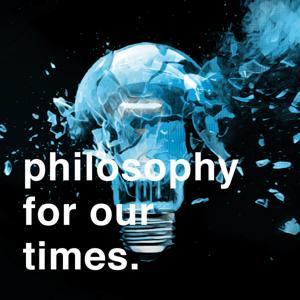You Are What You Do Next : Freedom as a Loop - The Deeper Thinking Podcast
*Can we pause our systems before they swallow our agency?*
The Deeper Thinking Podcast
An exploration of freedom as the engineered loops of reflection that allow us to author our own lives.
What if freedom wasn’t a sudden burst of will but a cultivated practice of recursive loops? In this episode, we invoke Paul Ricoeur’s and Dan McAdams’s narrative‐identity theory, Judith Butler’s recognitive justice, and Shoshana Zuboff’s critique of surveillance capitalism to show how recursive agency emerges only when time, language, and social witness align. We draw on Harry Frankfurt’s second‐order desires and Thomas Hobbes’s compatibilism to argue that true freedom is the structured capacity to re‐enter our own actions, revise meaning, and move forward with clarity.
This is not a manifesto. It’s a journey through classrooms practicing restorative justice, prisons designed on humane principles, and digital platforms engineered with design theory to insert micro‐pauses. We examine how institutions—from Norwegian island prisons and Chicago’s restorative circles to social‐media throttles—either erode or enable loops that turn accountability into an ongoing practice of becoming.
Some of the vignettes are drawn from real programs, while others are illustrative composites meant to show how a “loop” might be built in different contexts. For example:
Chicago’s Restorative Circles really exist: schools that implement circle discussions in lieu of suspensions have been shown to reduce repeat behavior by roughly a third.
Norway’s low-security island prisons (e.g., Bastøy) operate with humane, social-worker-style staff and have recidivism rates well below those in most countries.
Social-media “friction” experiments (like one-second delays before a post can be shared) have been tested by platforms such as Twitter/X to lower impulsive reposts of hateful material.
Stock-market circuit breakers that pause trading at certain thresholds are a real form of enforced pause in finance.
Other examples—such as the Kyoto pharmacy mirror-sticker campaign, the Berlin QR-code crosswalk prompts, or the agricultural-cooperative voice-memo requirement—are not documented cases but are plausible, hypothetical designs that follow the same logic. They’re meant to illustrate how small pauses or “loops” could be embedded in everyday systems.
Here are some reflections that surfaced along the way:
If you’d like to support the ongoing work, visit buymeacoffee.com/thedeeperthinkingpodcast or leave a review on Apple Podcasts. Thank you.
We are authors by redrafting, not by erasing: each loop we build is a chance to re-enter our own story.
#RecursiveAuthorship #FreedomLoop #ReflectiveAgency #DeeperThinkingPodcast #RestorativeJustice #DesignTheory #SurveillanceCapitalism #NarrativeIdentity #EducationalPauses #DigitalFriction



































![Cosmosis [Formerly The UFO Rabbit Hole] by Kelly Chase & Jay Christopher King](/_next/image?url=https%3A%2F%2Fpodcast-api-images.s3.amazonaws.com%2Fcorona%2Fshow%2F3501011%2Flogo_300x300.jpeg&w=640&q=75)
